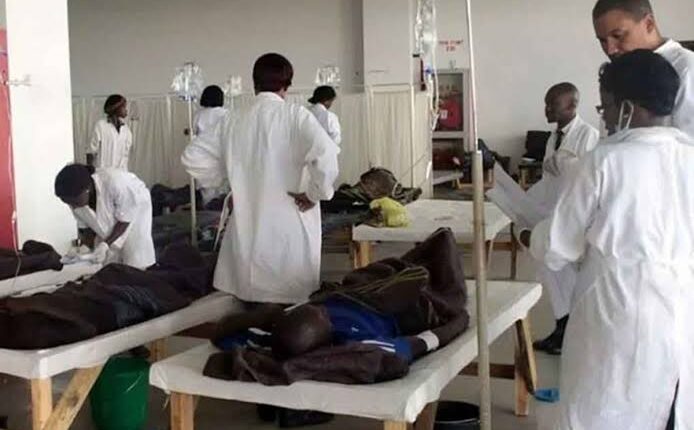A deadly cholera outbreak has claimed more than 700 lives in Angola this year, prompting urgent calls for Africa to boost local vaccine production, President Joao Lourenco said on Wednesday during emergency talks.
Speaking as African Union (AU) chair, Lourenco addressed fellow African leaders and international health officials in a virtual meeting focused on the continent’s surging cholera cases. The outbreak is affecting several countries, including Sudan, South Sudan, DR Congo, and Angola.
“To ensure a robust and sustainable response to this and future crises, it is critical to locate drug and vaccine production on our continent,” Lourenco said in remarks posted on social media.
He warned that Africa’s “exclusive dependence” on foreign imports compromises its health sovereignty and limits the continent’s ability to respond swiftly to epidemics. WHO Director-General Tedros Adhanom Ghebreyesus also joined the meeting.
According to Africa CDC, over 90% of vaccines and essential health commodities used across the continent are still imported. A recent CDC report warned that this reliance had already proven dangerous during past outbreaks — including COVID-19, Ebola, Marburg, and mpox — due to global trade tensions and logistical delays.
As of June 2, Angola had reported more than 24,530 cholera cases, with 718 deaths, according to a statement from Lourenco’s office. The disease — an acute intestinal infection spread through contaminated water — continues to pose a major health challenge in the region.
Other countries are also battling the crisis. On May 27, Sudan’s health ministry confirmed 172 cholera deaths in just one week, amid ongoing conflict.
Africa has seen a sharp rise in public health emergencies, the CDC noted, with 213 incidents in 2024, up from 152 in 2022. The AU says the only long-term solution lies in domestic manufacturing of vaccines and treatments to secure the continent’s future health resilience.



[…] said strict adherence to traffic regulations would help reduce crashes and improve safety on the […]
[…] motorists against excessive speeds and drunk driving to minimise accidents during, and beyond the Sallah celebrations. Adeoye gave the advice during an interview with the News Agency of Nigeria (NAN) on […]